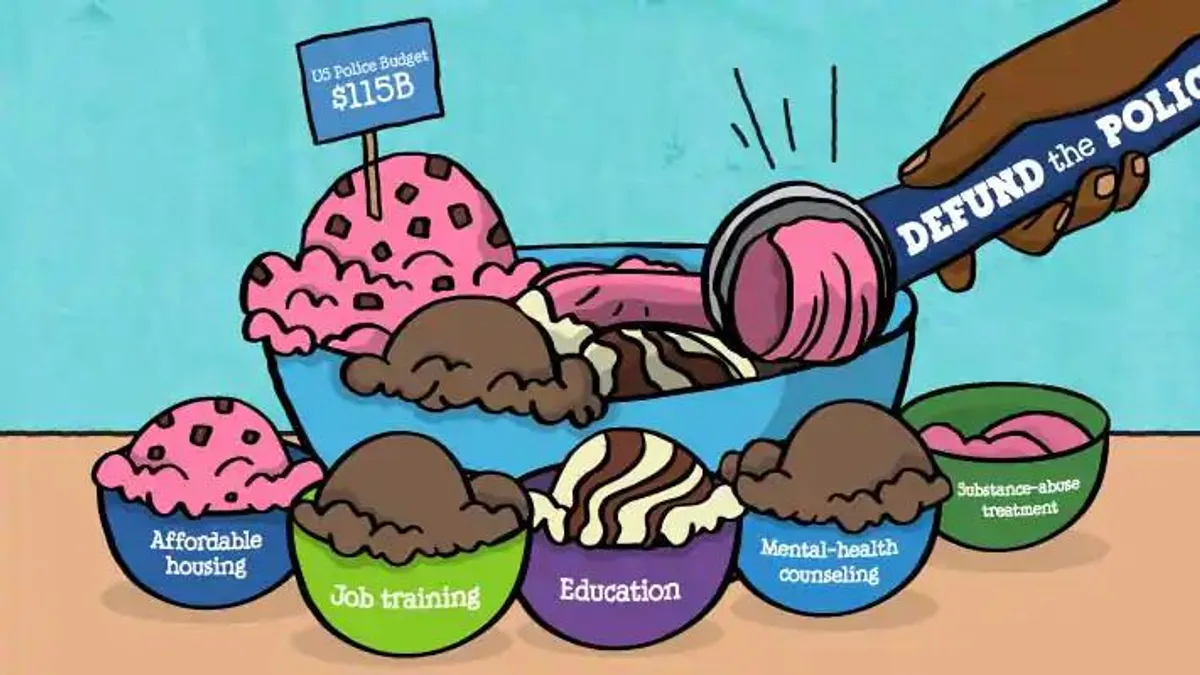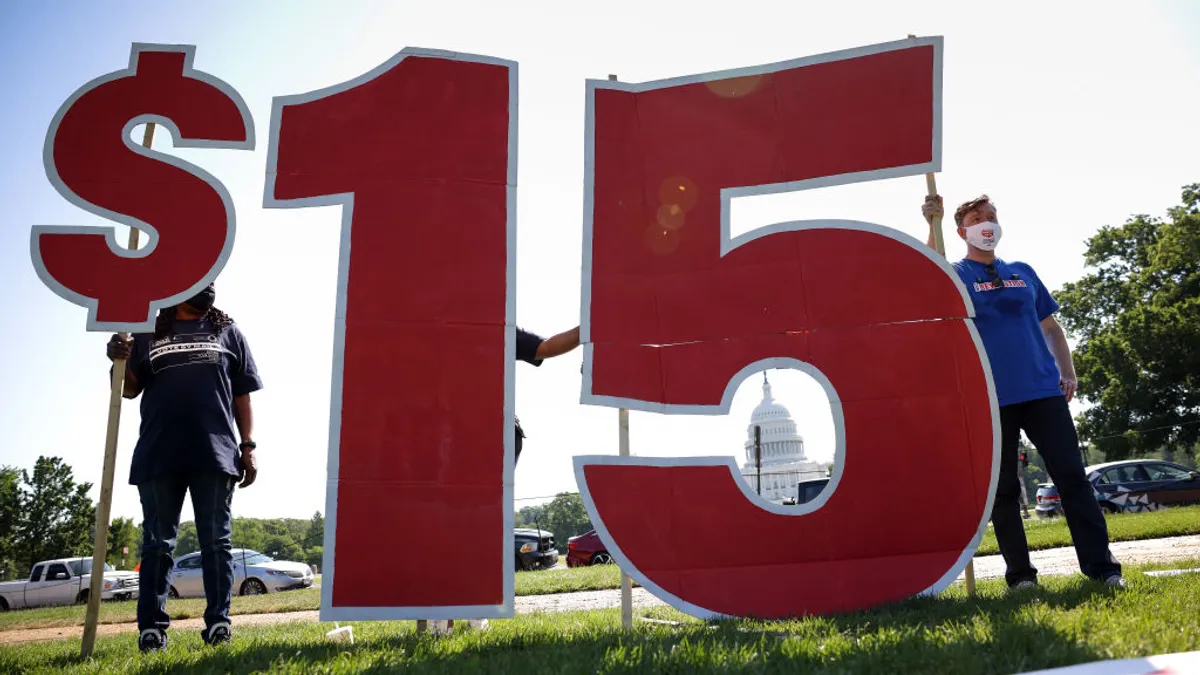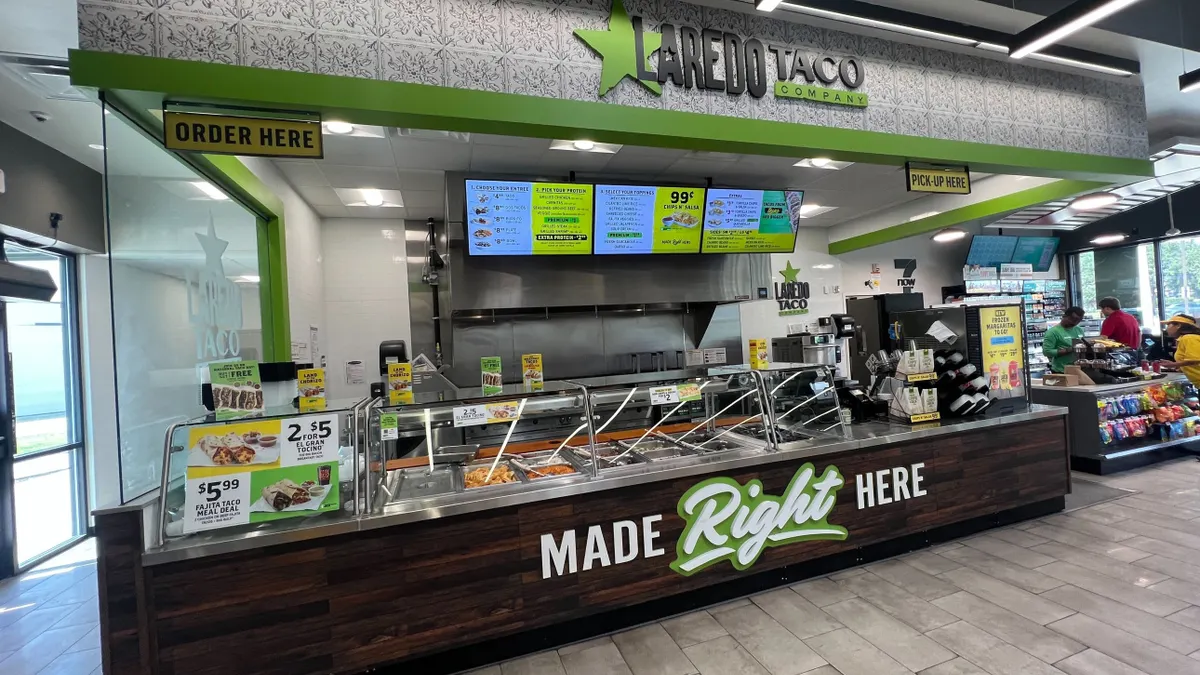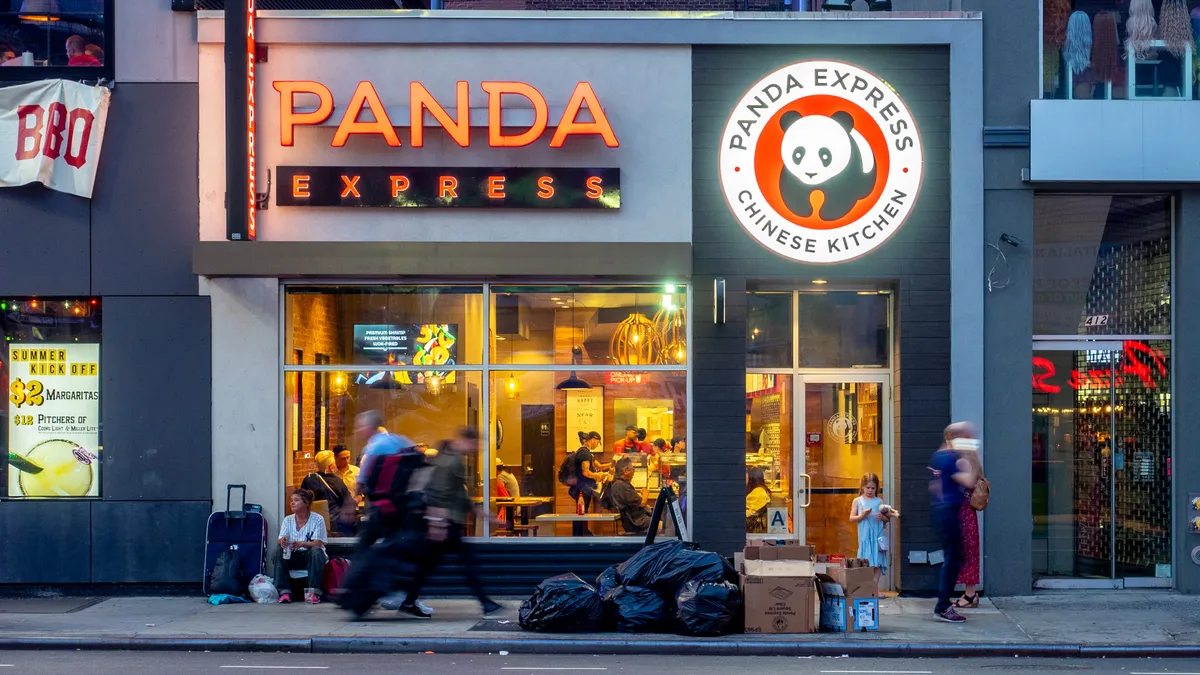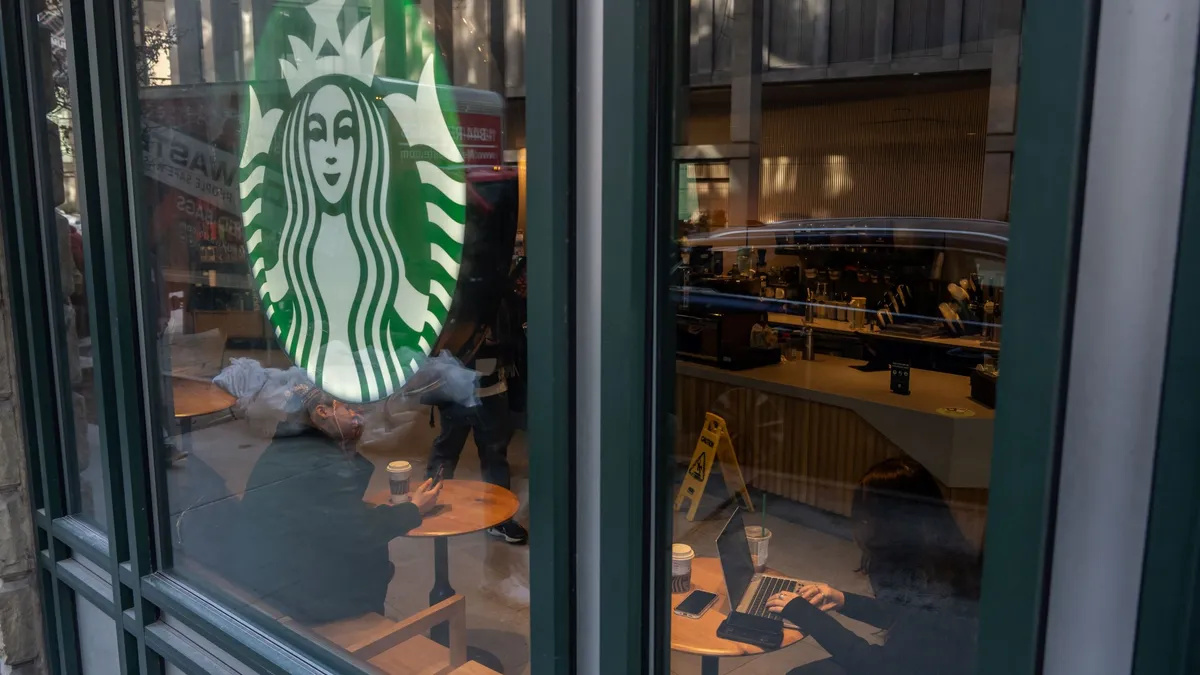UPDATE: June 1, 2023: Ben & Jerry’s voluntarily recognized Workers United as the bargaining representative in its flagship retail store in Burlington, Vermont, the union announced Tuesday. The recognition followed a card check procedure, in which Vermont State Representative Kate Logan confirmed a majority of the store had signed union cards, according to the Vermont AFL-CIO. Card check procedures, especially those agreed to by unions and employers, tend to favor unions as they avoid protracted National Labor Relations Board elections, which give employers time to persuade workers not to unionize.
Ben & Jerry’s has agreed to Scoopers’ United’s proposed fair election principles at the Ben & Jerry’s flagship store in Burlington, Vermont, the campaign announced at a Friday press conference with Sen. Bernie Sanders, making it much easier for workers to win union representation.
Rebekah Mendelsohn, a shift manager at the store and organizing committee member, told Restaurant Dive the news made Ben & Jerry’s one of, it not the first, national brand to sign the principles, versions of which have formed a core demand for the union in other campaigns, including the Starbucks Workers United campaign.
Northern New England has seen small hints of broader restaurant labor activism in recent weeks, with a Vietnamese restaurant in Portland, Maine moving to affiliate with UNITE HERE at the end of March. Workers at Black Cap Coffee & Bakery, across the street from the Ben & Jerry’s, announced their intent to unionize following the Ben & Jerry’s workers, said Jaz Brisack, Workers United’s organizing director for Upstate New York and Vermont and a founding member of Starbucks Workers United’s organizing committee.
Mendelsohn said the Ben & Jerry’s first started taking collective action after two people overdosed in the store’s bathrooms last summer. In both instances, Mendelsohn said, managers were not present, leaving workers responsible for handling biologically hazardous materials, including needles, and for tending the overdose victims while waiting for emergency services. Mendelsohn said workers had little to no training in sharps disposal, de-escalation and other safety concerns, and that the store lacked Narcan, an opiate agonist used to treat overdoses.
“After those incidents, staff were like ‘we will not work here, if these bathrooms are still open.’ Multiple people quit over the safety concerns,” Mendelsohn said.
Wages at the store began at $14 an hour, which is only 82 cents above the state minimum wage. Workers began requesting higher wages in the spring, with many asking management for raises in February and March. When management denied those requests, Mendelsohn said, workers started talking about a union. The organizing committee contacted the Vermont Labor Council, which put the workers in touch with Brisack.
Friendships between workers, many of whom attend the University of Vermont, made it easier to build solidarity. “We’re all genuinely very friendly and spend a lot of time together outside of the shop, as well as when we’re on shift. So what was felt by one was felt by all,” Mendelsohn said.
Organizing committee members would walk other workers home after their shifts, talk to them on the way to classes and use group chats to communicate about storewide issues. These tactics enabled the committee to convince 39 of the shop’s 40 employees to sign union cards before the campaign went public on April 17, Mendelsohn said. The 40th worker declined to sign a card as they were in the process of quitting, according to Mendelsohn.
Brisack and Mendelsohn said the company’s actions stood in marked contrast to other foodservice employers facing union drives.
“[Ben & Jerry’s is] the first multinational company, I’m aware of, to sign the fair election principles,” Brisack said. “And it’s also the first company to sign them without a war. They might be signing them to prevent that, but that’s much better than signing them after firing people and then facing consequences.”
Mendelsohn said that a major company signing the principles will give other union drives a potent PR weapon, while helping Ben & Jerry’s preserve its progressive reputation. The fair election principles, which are similar to but more extensive than those proposed by SBWU, include a pledge to give the union the right to hold meetings on company time in response to company captive audience meetings, a prohibition on intimidation and multiple processes for elections.
“It’s absolutely a launching point for campaigns against Starbucks, and Trader Joe’s and REI to be able to reference that Ben & Jerry’s have made this decision,” Mendelsohn said.
The organizing at Ben & Jerry’s has spurred nearby workers to unionize, with workers at Black Cap Coffee & Bakery across the street from the Ben & Jerry’s moving to join Workers United, in a campaign announced at the press conference. Mendelsohn said the conditions that spurred workers at Ben & Jerry’s are common throughout the foodservice industry in Burlington and that the campaign has created considerable excitement.
“I’m living every Vermonters dream, I’m hopefully going to shake hands with Bernie Sanders,” Mendelsohn said ahead of the press conference.
The union drive aligns with the company’s principles, Ben & Jerry’s wrote in a statement emailed to Restaurant Dive.
“The Burlington Scoop Shop management signed on to the principles that the representatives proposed. This should be regarded as a step in solidarity in the spirit of constant improvement towards a fair, inclusive, and equitable workplace,” the company said.
It’s unclear how many stores will be impacted if the movement spreads, as Ben & Jerry’s had two company-owned scoop shops at the start of 2022, compared to 161 franchised stores, according to the company’s franchise disclosure document. Franchised businesses generally are considered harder to organize than company-owned stores.



